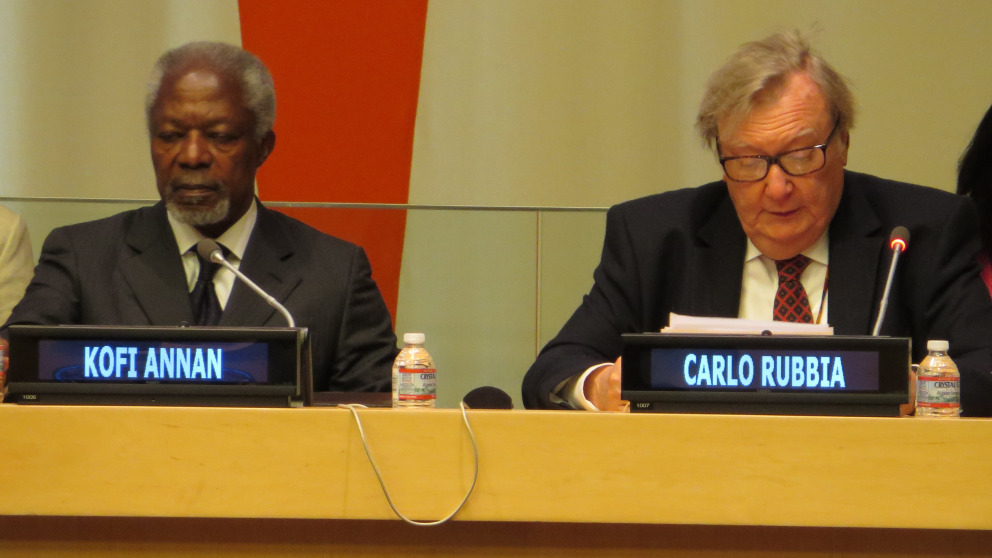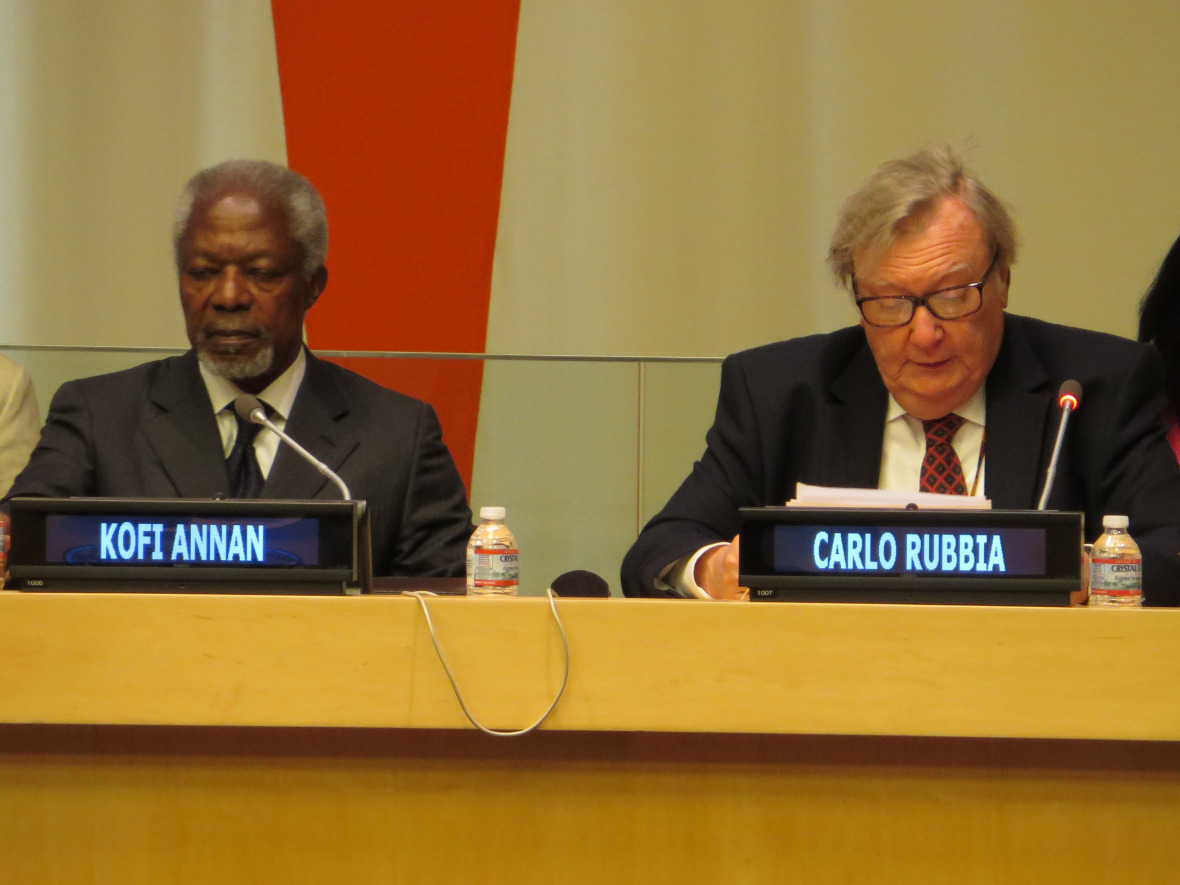Headline:
Science for Peace: IASS Scientific Director Carlo Rubbia Joins Celebrations to Mark CERN’s 60th Anniversary at United Nations

What role can science and scientific organisations play in bringing people and cultures together? Can the values promoted by science – neutrality, inclusion, cooperation – help to further the cause of peace and sustainable development?
The European Organisation for Nuclear Research (CERN), one of the world’s largest research centres and an important collaboration partner of the IASS, was established after the Second World War to give Europe an international institution for basic research on particle physics and to unite nations for the advancement of knowledge. Since then, this vision has grown into a model of scientific and technological collaboration that has made lasting contributions to peace and development.

As part of CERN’s 60th anniversary celebrations, a special high-level event was organised at the United Nations Headquarters in New York. Under the chairmanship of the President of the General Assembly and following an introduction by CERN Director General Professor Rolf Heuer and UN Secretary-General Ban Ki-moon, eminent scientists and politicians offered their testimonies on the role played by science in peacefully uniting communities.
IASS Scientific Director Professor Carlo Rubbia, who was among the invited speakers, provided insights from his own experience. Since the beginning of his career at CERN in 1961, Rubbia has been part of the organisation’s scientific achievements. In 1983, an international team of more than 100 physicists led by him detected the intermediate vector bosons; in 1984, he was awarded the Nobel Prize for Physics for this discovery. He later became CERN’s Director General (1989–1994) and has been Scientific Director of the IASS since 2010.
In his keynote speech, Rubbia described science as a “universal language” that “has existed across cultural and geographic barriers”. And indeed, the internationalisation of scientific research facilitated by open institutions like CERN has been one of the main contributors to the reconstruction of Europe after World War II. Citing the example of the creation of the World Wide Web, Rubbia stated that “scientific discoveries are a patrimony belonging to the whole of mankind, and as such they should be made freely available to everyone.”
Throughout the discussions, the speakers highlighted how science and scientific education are fundamental to enabling sustainable development and advocated better integration of science into national and global decision-making processes. Too often, scientific input is confined to the sidelines of the debate or trumped by other considerations. In order to tackle the urgent challenges of the Anthropocene, science should instead play a greater role in relation to society and politics. In this respect, a core tenet of the IASS mission is to better connect knowledge generation to decision-makers and the broader public, in order to translate research findings into transformation processes.
More information:
- Programme
- Keynote speech by IASS Scientific Director Professor Carlo Rubbia
- Video of the anniversary celebrations
- CERN press release
Photo: (c) IASS
20.10.2014
